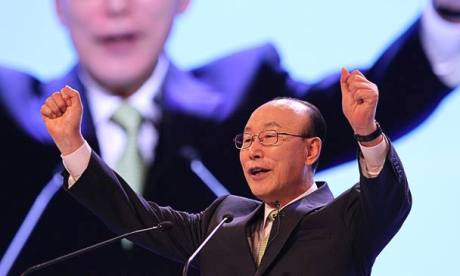South Korea’s parliament has approved a bill that will require the nation’s clergy to pay taxes from 2018.
South Korea has an estimated 360,000 priests and monks whose earnings will be re-classified as “religious income”, rather than the current label of “honorarium”.
A sliding scale means those earning 40 million won (US$34,500) or less a year will only be taxed on 20 per cent of their income.
At the upper end, those earning more than 150 million won will have to pay tax on 80 per cent of their income.
Public opinion polls have long favoured extending tax responsibilities to religious groups.
Some religious groups are highly secretive about their financial arrangements.
“Pastors who receive benefits and gifts outside of their monthly income and do not pay income taxes can be perceived as not doing their duties as members of the community,” said Kim Ai-Hee, secretary general of the Korean Christian Alliance for Church Reform.
Catholic priests have voluntarily paid income tax since the mid-1990s, AFP reported.
But the most vocal opponents of the new tax policy are within the larger Protestant community which wields considerable political clout.
Some individual Protestant churches boast enormous congregations and considerable wealth, and are run like mini-fiefdoms with pastors passing control of the church and its business down to their children.
Last year, David Yonggi Cho, the pastor of the biggest congregation of all, at the Yoido Full Gospel Church in Seoul, was handed a three-year suspended jail term for embezzling millions of dollars.
But the opponents of taxation insist their stance is grounded in principle rather than self-interest.
“Taxing religious practitioners equates religious activities with commercial activities,” a conservative Protestant group, the Commission of Churches in Korea, said in a statement.
A spokesman for the commission, Choi Kwi-Soo, also noted that Protestant pastors who, unlike monks and Catholic priests, generally marry and have families, would be hardest hit.
“They are different from monks or priests who can live on a relatively meagre income. That should be taken into account,” Choi told AFP.
Sources
- AFP
- Image: Christian Post
News category: World.




